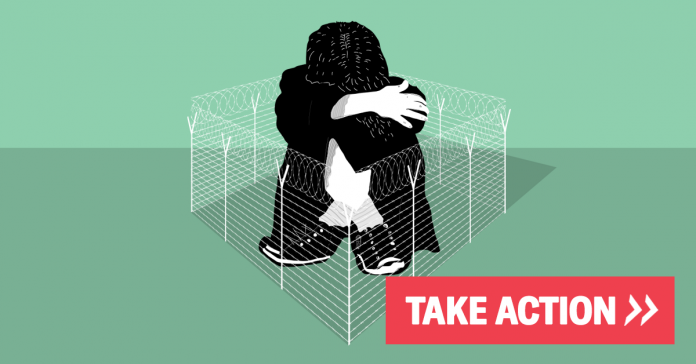India signed the Convention Against Torture (CAT) in 1997 , ten years after it came in force in 1987.
The CAT today has 162 state parties of which 83 are signatories. But India is yet to ratify the convention, putting it in the company of countries like the Bahamas, Angola, Haiti and Brunei.
India Holding Out Despite International Pressure
In 2008, during a periodical review by the Human Rights Council (HRC) of the UN, several countries recommended India expedite its ratification. India responded stating that it was “under process.”
India pledged in 2011 to ratify the CAT when it sought to be appointed on the HRC. However despite joining the Council subsequently, the ratification is yet to be done.
In the 2012 review, countries again recommended that India ratify the CAT and pass a Prevention Against Torture Act.
The review noted that India’s NHRC had reported a “significant number of torture cases” that involved its security agencies. India expressed its support to the recommendation, and reemphasised “its commitment to ratify the CAT”, but took no action.
India has thus been making promises but has failed to keep them.
Police Torture Common In India
Torture cases are on the rise in India
- In Raghbir Singh v. State of Haryana (1980), the Supreme Court said it was “deeply disturbed” by the recurrence of police torture
- In Shakila Abdul Gafar Khan v. Vasant Raghunath Dhoble (2003), the Supreme Court decried the lack of response to the concern expressed in Raghubir’s case and noted that “torture is assuming alarming proportions”
- In Munshi Singh Gautam v. State of M.P. (2004), the Supreme Court warned that civilization was at the risk of “heading towards total decay” .
The UN High Commissioner for Human Rights, has censured India’s response that an anti-torture bill needed to be passed in Parliament before ratifying the CAT, noting that it was an “errorenous idea” and a misconception.
Ratification indicates the start of the process to modify national laws so as to make them in line with international human rights standards, and signals political intention to follow international norms.
The Lapsed 2010 Law On Torture Was A Right Step
The Prevention of Torture Bill, 2010 was a laudable attempt by the Parliament to introduce a new legislation to tackle the problem.
Provisions in it expanded the definition of torture from beyond broken bones and murder as per current Indian law to include other forms like sleep deprivation, forcible feeding, electric shocks and food deprivation.
In the same year the bill was endorsed by a Select Committee of Parliament which also recommended some measures for compensation, rehabilitation, and witness protection. The committee also noted that a majority of states and union territories were in favour of the bill, but despite this the bill was allowed to lapse.
SC Petition For Ratification
In 2016 a petition was filed in Supreme Court seeking a directive to the Union Government to ratify the CAT.
The government opposed the PIL noting that the Law Commission was reviewing the issue. This excuse was invalidated after the Law Commission submitted its report which recommended the ratification and development of a comprehensive legislation.
The Centre has however remained opposed to ratification.
According to legal experts, the government is undermining India’s standing in the world by failing to make good on its promises to the UN and failing to take action against the terror spread by its own forces.





